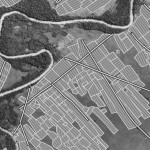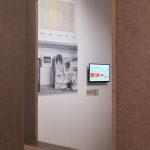- Low-tech at the University. [Kairos] The challenge of low-tech is not to juxtapose harmless « soft » alternatives to industrial technologies, as this would only create a new niche market for « responsible consumers ». It is a question of replacing, as much as possible, the industrial productions by artisanal productions, adapted to the direct environment of their user, selected, understandable, repairable, adaptable and durable.
- Why the past 10 years of American life have been uniquely stupid. [The Atlantic] “The main problem with social media is not that some people post fake or toxic stuff; it’s that fake and outrage-inducing content can now attain a level of reach and influence that was not possible before 2009.”
- Stuck Between Climate Doom and Denial. [The New Atlantis] The incredibly fascinating, important, and nuanced issue of climate change has become an online team sport between the good guys (your side) and the bad guys (the other side).
- The Unabomber and the origins of anti-tech radicalism. [Journal of Political Ideologies]. “As today’s most infamous anti-tech radical, and as the one with the most detailed blueprint for a revolution, Kaczynski may well become the ‘Marx’ of anti-tech.”
- The Degrowth conundrum. [Resilience] “Only when the right ideas and values become predominant can structural change towards simpler lifestyles and systems take place. These conditions show the fundamental mistake built into the standard socialist assumption that the good society must have highly centralised state control. And it shows that the standard socialist strategy of taking control of the state is also fundamentally mistaken.”
- Ecological Civilisation: Beyond Consumerism and the Growth Economy – Free Course. “This video series will be grappling with the problems of consumerism and the growth economy; envisioning alternative, post-carbon ways of life; and considering what action can be taken, both personally and politically, to help build an ecological civilisation.”
- Why we need the apocalypse. [Unherd] In modern terms, “apocalypse” has come to mean “the cataclysmic end of everything”. But this is a long way from the ancient Greek understanding: to uncover, to disclose or lay bare. From this perspective, apocalypse isn’t the end of the world. Or at least, not just the end of the world. Rather, it’s the end of a worldview: discoveries that mean a previous way of looking at things is no longer tenable.
- Monbiotic Man. [The Land] “Simon Fairlie assesses the farm-free future for humanity spelled out in George Monbiot’s latest book ‘Regenesis’.”
- Beyond rescue ecomodernism: the case for agrarian localism restated. [Small farm future] “Given the present world historical moment of profound crisis that the modernist myth of progress has generated and cannot tackle, it surprises me how powerfully it still animates almost all mainstream responses to the crisis.”
- Should we be trying to create a circular urine economy? [Ars technica] “Urine diversion could solve a lot of the environmental problems that plague overwhelmed wastewater treatment systems, but it’s a whole different way of thinking.”
- How To Deflate An SUV Tyre. [Tyre Extinguishers]. “Because governments and politicians have failed to protect us from this danger, we must protect ourselves.”
- Useless Car.
- Silicon Valley’s Push Into Transportation Has Been a Miserable Failure. [Gizmodo] The titans of tech brought plenty of disruption to our broken transportation system but delivered little in the way of innovation.
- The global warming reduction potential of night trains. [Back on Track] “Back-on-Track, a European network of night train initiatives, has examined air passenger numbers in the EU in 2019 to see which air connections could be replaced by night train connections.”
- The attack on rail. [Compact Magazine]. “Disorder, war, and general chaos have conspired to prevent what ought to have been the global triumph of the railway.”
- Chronotrains. This map shows you how far you can travel from each station in Europe in less than 5 hours.
- Orbis. ORBIS allows us to express Roman communication costs in terms of both time and expense. By simulating movement along the principal routes of the Roman road network, the main navigable rivers, and hundreds of sea routes in the Mediterranean, Black Sea and coastal Atlantic, this interactive model reconstructs the duration and financial cost of travel in antiquity.
- Fuck Off Google.
- After self-hosting my email for twenty-three years I have thrown in the towel. The oligopoly has won. [Carlos Fenollosa]
- FreedomBox. FreedomBox is a private server for non-experts: it lets you install and configure server applications with only a few clicks. It runs on cheap hardware of your choice, uses your internet connection and power, and is under your control.
- Old age isn’t a modern phenomenon – many people lived long enough to grow old in the olden days, too. [The Conversation] It’s incorrect to view long lives as a remarkable and unique characteristic of the “modern” era.
- The Healing Power of “Bello”. [Craftsmanship Quarterly] How an intentional community in Italy uses craftsmanship—and a sense of family—to holistically rehabilitate people who are suffering from drug addiction.
- The making and knowing project. “The Making and Knowing Project is a research and pedagogical initiative in the Center for Science and Society at Columbia University that explores the intersections between artistic making and scientific knowing. Today these realms are regarded as separate, yet in the earliest phases of the Scientific Revolution, nature was investigated primarily by skilled artisans by means of continuous and methodical experimentation in the making of objects – the time when “making” was “knowing.””
Low-tech Baby Care
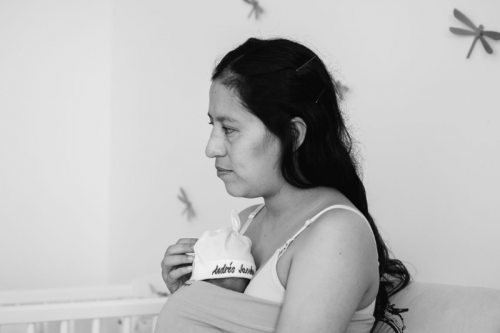 Kangaroo Mother Care (KMC) is the brainchild of Colombian pediatrician Edgar Rey, who introduced it to the Instituto Materno Infantil in 1978. It was an idea born out of desperation. The institute served the city’s poorest—those who lived crammed in the rickety makeshift dwellings in the foothills of the surrounding mountains. At the time, this was the biggest neonatal unit in all of Colombia, responsible for delivering 30,000 babies a year.
Kangaroo Mother Care (KMC) is the brainchild of Colombian pediatrician Edgar Rey, who introduced it to the Instituto Materno Infantil in 1978. It was an idea born out of desperation. The institute served the city’s poorest—those who lived crammed in the rickety makeshift dwellings in the foothills of the surrounding mountains. At the time, this was the biggest neonatal unit in all of Colombia, responsible for delivering 30,000 babies a year.
Overcrowding was so bad that three babies would have to share an incubator at a time and the rate of cross-infection was high. Death rates were spiraling, and so too was the level of abandonment. Many young, impoverished mothers who never even got to touch their babies found it easier just to take off.
 Scouting around for a solution to these problems, Rey happened upon a paper on the physiology of the kangaroo. It mentioned how at birth, kangaroos are bald and roughly the size of a peanut—very immature, just like a human pre-term baby. Once in its mother’s pouch, the kangaroo receives thermal regulation from the direct skin-to-skin contact afforded by its lack of hair. It then latches onto its mother’s nipple, where it remains until it has grown to roughly a quarter of its mother’s weight, when it is finally ready to emerge into the world.
Scouting around for a solution to these problems, Rey happened upon a paper on the physiology of the kangaroo. It mentioned how at birth, kangaroos are bald and roughly the size of a peanut—very immature, just like a human pre-term baby. Once in its mother’s pouch, the kangaroo receives thermal regulation from the direct skin-to-skin contact afforded by its lack of hair. It then latches onto its mother’s nipple, where it remains until it has grown to roughly a quarter of its mother’s weight, when it is finally ready to emerge into the world.
This struck a chord with Rey. He went back to the institute and decided to test it out. He trained mothers of premature babies to carry them just as kangaroos do. Working alongside his colleague Hector Martinez, he taught them the importance of breastfeeding and discharged them just as soon as their babies were able. The results were remarkable. Death rates and infection levels dropped immediately. Overcrowding was reduced because hospital stays were much shorter, incubators were freed up, and the number of abandoned babies fell.
Read more: Kangaroo care—why keeping baby close is better for everyone, Ars Technica. Thanks to Tim Miller.
Deschooling Society
Quoted from: Deschooling Society, Ivan Illich, 1972:
We cannot begin a reform of education unless we first understand that neither individual learning nor social equality can be enhanced by the ritual of schooling. We cannot go beyond the consumer society unless we first understand that obligatory public schools inevitably reproduce such a society, no matter what is thaught in them…
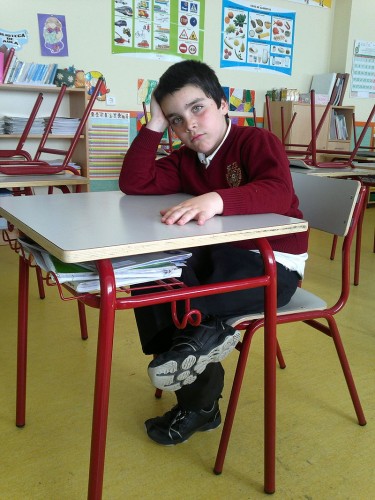 School initiates the Myth of Unending Consumption. This modern myth is grounded in the belief that process inevitably produces something of value and, therefore, production necessarily produces demand. School teaches us that instruction produces learning. The existence of schools produces the demand for schooling. Once we have learned to need school, all our activities tend to take the shape of client relationships to other specialized institutions.
School initiates the Myth of Unending Consumption. This modern myth is grounded in the belief that process inevitably produces something of value and, therefore, production necessarily produces demand. School teaches us that instruction produces learning. The existence of schools produces the demand for schooling. Once we have learned to need school, all our activities tend to take the shape of client relationships to other specialized institutions.
Once the self-taught man or woman has been discredited, all nonprofessional activity is rendered suspect. In school we are thaught that valuable learning is the result of attendance; that the value of learning increases with the amount of input; and, finally, that this value can be measured and documented by grades and certificates.
In fact, learning is the human activity which least needs manipulation by others. Most learning is not the result of instruction. It is rather the result of unhampered participation in a meaningful setting. Most people learn best by being “with it”, yet school makes them identify their personal, cognitive growth with elaborate planning and manipulation.
Once a man or woman has accepted the need for school, he or she is easy prey for other institutions. Once young people have allowed their imaginations to be formed by curricular instruction, they are conditioned to institutional planning of every sort. “Instruction” smothers the horizon of their imagination.
Don’t Take Notes with a Laptop
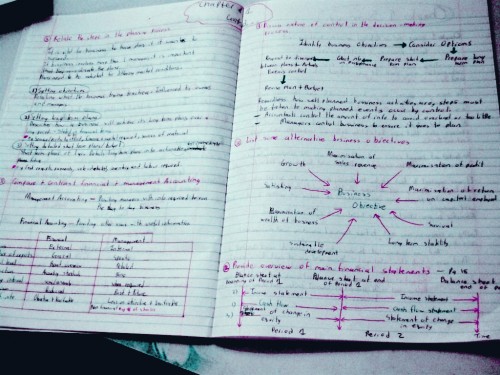 “Taking notes by hand requires different types of cognitive processing than taking notes on a laptop, and these different processes have consequences for learning. Writing by hand is slower and more cumbersome than typing, and students cannot possibly write down every word in a lecture. Instead, they listen, digest, and summarize so that they can succinctly capture the essence of the information.”
“Taking notes by hand requires different types of cognitive processing than taking notes on a laptop, and these different processes have consequences for learning. Writing by hand is slower and more cumbersome than typing, and students cannot possibly write down every word in a lecture. Instead, they listen, digest, and summarize so that they can succinctly capture the essence of the information.”
“Thus, taking notes by hand forces the brain to engage in some heavy “mental lifting,” and these efforts foster comprehension and retention. By contrast, when typing students can easily produce a written record of the lecture without processing its meaning, as faster typing speeds allow students to transcribe a lecture word for word without devoting much thought to the content.”
Read more: A learning secret: don’t take notes with a laptop. Via The Antioch Review.
Thanks to David Edgerton. Picture credit.
Last Child in the Woods
“The remarkable collapse of children’s engagement with nature – which is even faster than the collapse of the natural world – is recorded in Richard Louv’s book Last Child in the Woods, and in a report published recently by the National Trust. Since the 1970s the area in which children may roam without supervision has decreased by almost 90%. In one generation the proportion of children regularly playing in wild places in the UK has fallen from over half to fewer than one in ten. In the US, in just six years (1997-2003) children with particular outdoor hobbies fell by half. Eleven to 15 year-olds in Britain now spend, on average, half their waking day in front of a screen. The young people we might have expected to lead the defence of nature have less and less to do with it.” Read more.
Computers in Education
“The chief technology officer of eBay sends his children to a nine-classroom school here. So do employees of Silicon Valley giants like Google, Apple, Yahoo and Hewlett-Packard. But the school’s chief teaching tools are anything but high-tech: pens and paper, knitting needles and, occasionally, mud. Not a computer to be found. No screens at all. They are not allowed in the classroom, and the school even frowns on their use at home.”
Read more: A Silicon Valley School That Doesn’t Compute. Hat tip to Kris Peeters.



